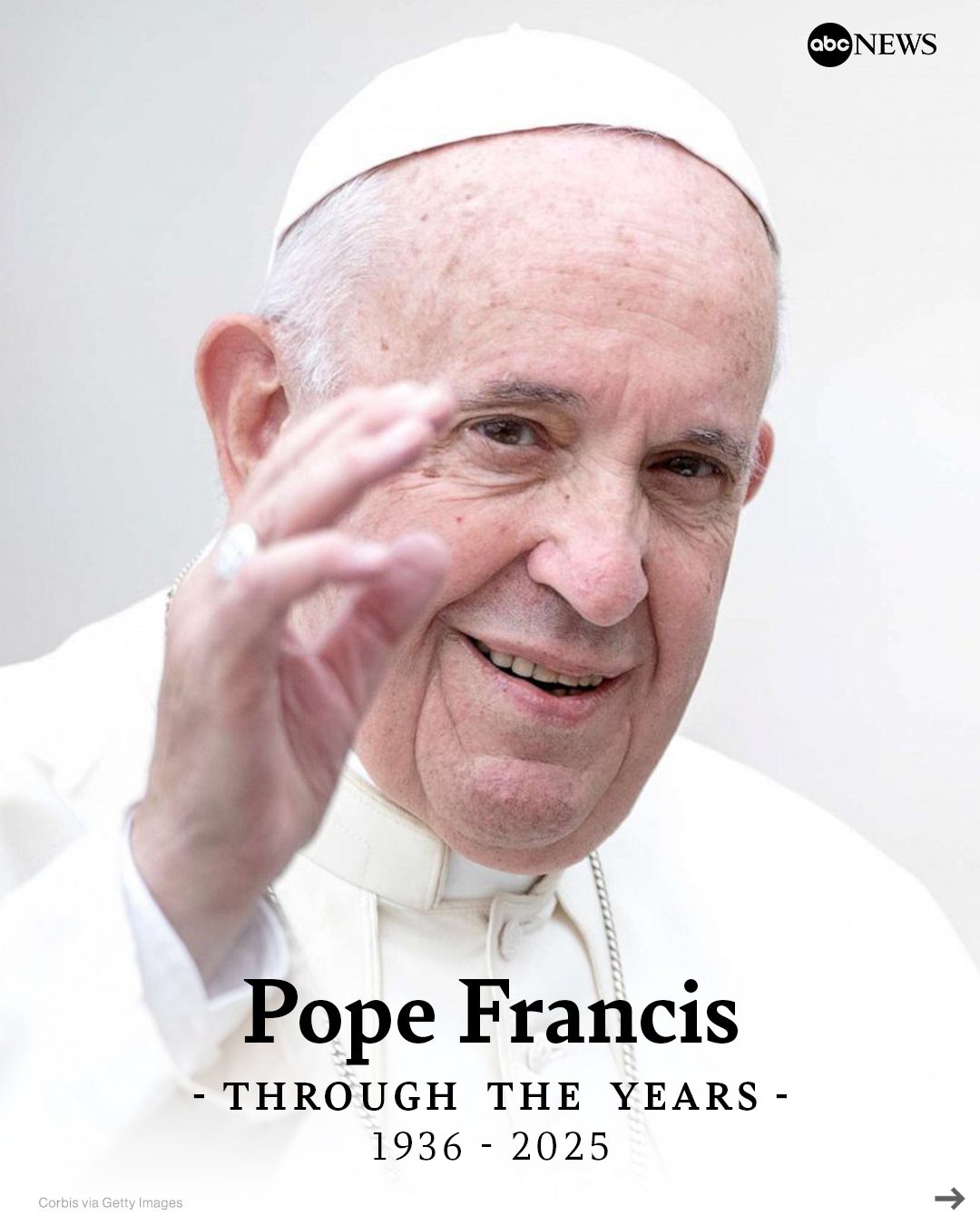Pope Francis Passes Away at 88: Vatican Confirms Death After Stroke and Cardiac Arrest Complicated by Double Pneumonia
Vatican City — In a deeply mournful announcement, the Vatican confirmed that Pope Francis, the beloved leader of the Catholic Church, has passed away at the age of 88. The pontiff, who had served as the 266th Pope of the Catholic Church since 2013, died following a stroke and cardiac arrest, which were exacerbated by complications from a recent battle with double pneumonia.
The news of the Pope’s death has sent shockwaves through the global Catholic community, as well as the broader world, where he was widely regarded for his humility, progressive leadership, and unwavering commitment to social justice.
The Final Days of Pope Francis
Pope Francis had been experiencing worsening health in recent weeks. Though he had previously battled lung issues, including partial lung removal due to past medical conditions, it was his recent pneumonia that led to a dramatic decline in his health. According to sources within the Vatican, the Pope’s condition worsened after he suffered a stroke late last evening, followed by cardiac arrest that proved fatal.
In his final moments, Pope Francis was surrounded by close aides, including his medical team and a group of clergy members, who were at his side as he passed peacefully in the Apostolic Palace.
A Pope of Reform and Compassion
Pope Francis’ papacy was one of profound change. A champion for the poor, the marginalized, and the voiceless, he sought to steer the Catholic Church toward greater inclusivity and compassion. He was the first Jesuit pope and the first from Latin America, bringing a fresh perspective to the Vatican, as well as a focus on social justice, climate change, and the rights of refugees.
His landmark encyclical, Laudato Si’, called for urgent action on environmental issues, urging both individuals and governments to care for God’s creation. Throughout his tenure, Pope Francis was known for his hands-on approach to the Church, often choosing humility over tradition. From living in a simple guest house to traveling the world to meet with leaders and ordinary people alike, his actions reflected his deep commitment to the teachings of Jesus Christ.
Perhaps most notably, Pope Francis remained a beacon of peace and reconciliation in times of political and social turbulence, often calling for dialogue between different faiths, cultures, and nations.
Mourning Around the World
As news of his death spread, reactions poured in from world leaders, religious figures, and millions of Catholics. U.S. President [Name] expressed deep sorrow, calling the Pope a “moral giant” whose influence reached far beyond the walls of the Vatican. Cardinal Tagle, a close ally of Pope Francis, said in a statement, “He taught us that the Church’s mission is not to wield power, but to serve the poor and be a light of hope.”
Vigils and memorial services are being organized worldwide, with many gathering in St. Peter’s Square to honor the Pope’s memory.
What’s Next for the Catholic Church?
With Pope Francis’ passing, the Vatican now enters a period of Sede Vacante—the time when the papal seat is vacant. The College of Cardinals will convene in the coming weeks to elect a new pope in a papal conclave. This process is expected to begin shortly after Pope Francis’ funeral, which will be held in accordance with Church tradition.
The future of the papacy remains uncertain, but Pope Francis’ legacy—centered on mercy, justice, and faith—will continue to shape the direction of the Catholic Church in the years to come.
